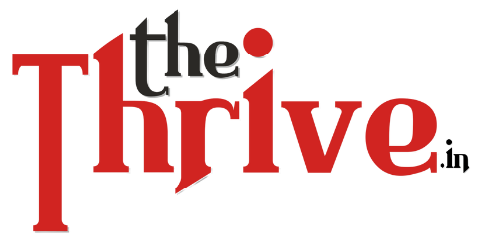CRM systems are used by many B2B and B2C businesses in order to organise business processes well and make complex tasks more accessible and more manageable to do. They help manage customer data, support marketing teams, integrate with sales to increase customer satisfaction, deliver insights and help with customer support.
Integrating an automation platform takes out: the time-consuming prospecting and customer management tasks that, although necessary, are unnecessary. Automating your customer relationship management system takes care of daily tasks such as calendar management, updating customer information and data, and many more.
CRM automation streamlines the entire marketing-to-sales process through a series of which are Marketing automation tools, such as helping with the handling of email marketing campaigns, using beautiful templates, and data syncing. And sales automation tools, such as call scheduling, workflow automation, and automatic assignment of qualified leads.
What is CRM?
CRM stands for “Customer Relationship Management” and is a software system that helps business owners easily track all communications and build relationships with their leads and customers. A CRM replaces many spreadsheets, databases and apps that many businesses use to track client data.
CRM Software bots such as AI chatbots for customer service automation and CRM automation also facilitate the conversation between the various marketing and sales teams, which is a standard business issue.
CRM Automation Software: Benefits
1) Increase Productivity
The ability to manage tasks is a benefit. You can build workflows and triggers, and redundant, monotonous tasks can be done with a single click. In turn, this allows business owners, sales reps and customer service reps to turn their minds to more important things than paperwork.
2) Improve Pipeline Performance
Because teams are able to manage follow-up, automating your customer relationship management can help them generate more MQLs and SQLs with better qualification rates.
3) Sales
Automation allows teams to make more out of your CRM data through that you can do customer research, and legal paperwork, making the sales process shorter. Because of all the potential customer's data.
4) Data
When you get the marketing data with accuracy. That data you can use to focus your marketing efforts provides you with insight into complicated decisions.
5) Improve Customer Satisfaction
CRM automation tools are the integration of chatbots as part of the customer service process. These software bots can help quickly and easily identify customer issues and promptly address them appropriately.
5 Core functions of the CRM tool
1. Contact management:
Contact management is a feature offered by most CRM automation software to help manage contact data and customer data with fields such as name, email, contact details, social profiles, company details and many more. It also provided a clean and organised user interface that enables quick responses to search queries and easy accessibility to customer data.
2. Lead management:
This helps executives keep track of lead activities. This includes lead identification, scoring, pipeline management, workflow, and lead tracking. This function keeps sales executives updated with current data.
3. Documentation management:
Sales processes include a lot of documentation such as RFPs, quotes, invoices, transactional documents, sales templates, and contracts. It is important to store these documents where they are readily accessible by sales and they can collect, upload and share them with ease with an integral function of CRM automation.
4. Integration:
CRM automation must facilitate integration with other applications and tools such as email, calendars, project management tools, etc. Email integration helps sales teams keep track of their conversations, as well as segment their contact lists efficiently.
5. Reports and analytics:
Reports and analytics is a core functionality of CRM automation that helps optimize sales teams and enables data-driven decision-making to analyse sales forecasting and reports.
Types of CRM automation tools based on installation:
1. On-premise CRM automation software:
This software only works when it's connected to the internet and can only be accessed from within a defined network and permitted devices. This software is preferred by companies that deal with sensitive data. It is more expensive to install, maintain and scale than cloud-based solutions.
2. Cloud-based CRM automation software:
Cloud-based CRM automation tools are often available as SaaS applications. With no installation cost or maintenance fee, real-time access to data from any device and location, flexible pricing options etc. make cloud CRMs the preferred CRM automation software for every business.
The Top Seven CRM Automation Software in 2023
1. Hubspot CRM
The Hubspot CRM tool is an integrated automation tool that offers sales, marketing, and customer service automation functions.
It also provides all the basic features essential for CRM automation such as sales pipeline management, email sending, scheduling, and tracking, workflow management, database management, lead scoring, social media integration, or calls. The CRM gives a free subscription for up to 1,000,000 contacts and easy integrations for third-party tools.
2. Salesforce Sales Cloud
Salesforce offers solutions through the Salesforce sales cloud tool. Ideal for medium and enterprise organizations, this CRM offers basic and advanced functions to automate your sales pipeline.
The Salesforce basic is as per month for beginners in CRM automation which is good for beginners. You can upgrade your plan according to your needs.
3. Zoho CRM
Zoho CRM caters to SMB and startup markets. It provides all the basic automation functions like lead management, forecasting, activity workflows, and account management.
It also boasts a gamification platform to engage and motivate salespeople in achieving their targets. Zoho CRM offers subscription plans like basic plans that can be upgraded per your requirements.
4. FreshSales
This tool makes an ideal fit for Small And Midsize Businesses (SMB) and mid-market enterprises. With basic and advanced features like event tracking, call tracking, email automation, deal management, and lead scoring, the amazing thing is it goes with both the mobile-friendly application available for Android and iOS.
5. Insightly
Insightly has powerful features like lead routing, workflow automation, contact management, and sales alignment and lets you track important information about your leads using a timeline with details on sources, meetings, emails, and calls.
6. ActiveCampaign
ActiveCampaign offers various tools for marketing and sales. The platform’s tools like goal tracking, autoresponders, and multichannel broadcasting make marketing automation easy to use. Lets you integrate your calendar with third-party applications, like Google and Outlook – and allows for easy appointment scheduling.
7. bpm online CRM
bpm online CRM has advanced CRM automation features. The USP for this CRM tool provides field sales management features that improve field sales processes. It also offers easy synchronization and integration with third-party systems.
Summary
CRM automation helps salespeople track each and every activity of leads which includes blog post visits, email opens and clicks, and website content interactions CRM automation has become an integral if not mandatory requirement of firms.
Today CRM is moving towards the use of machine learning (ML) and AI, voice and conversational commerce, and microservices models to deliver ever-increasing value to B2B organizations.
FAQ's on CRM's:
Future CRM strategies will include tracking comments, likes and shares in a central place, offering insights into long-term social media trends.
There are three main types of CRM systems: collaborative, analytical, and operational.
AWS Managed Services (AMS) provides a customer relationship management (CRM) process to ensure that a well-defined relationship is established and maintained with its customers.




